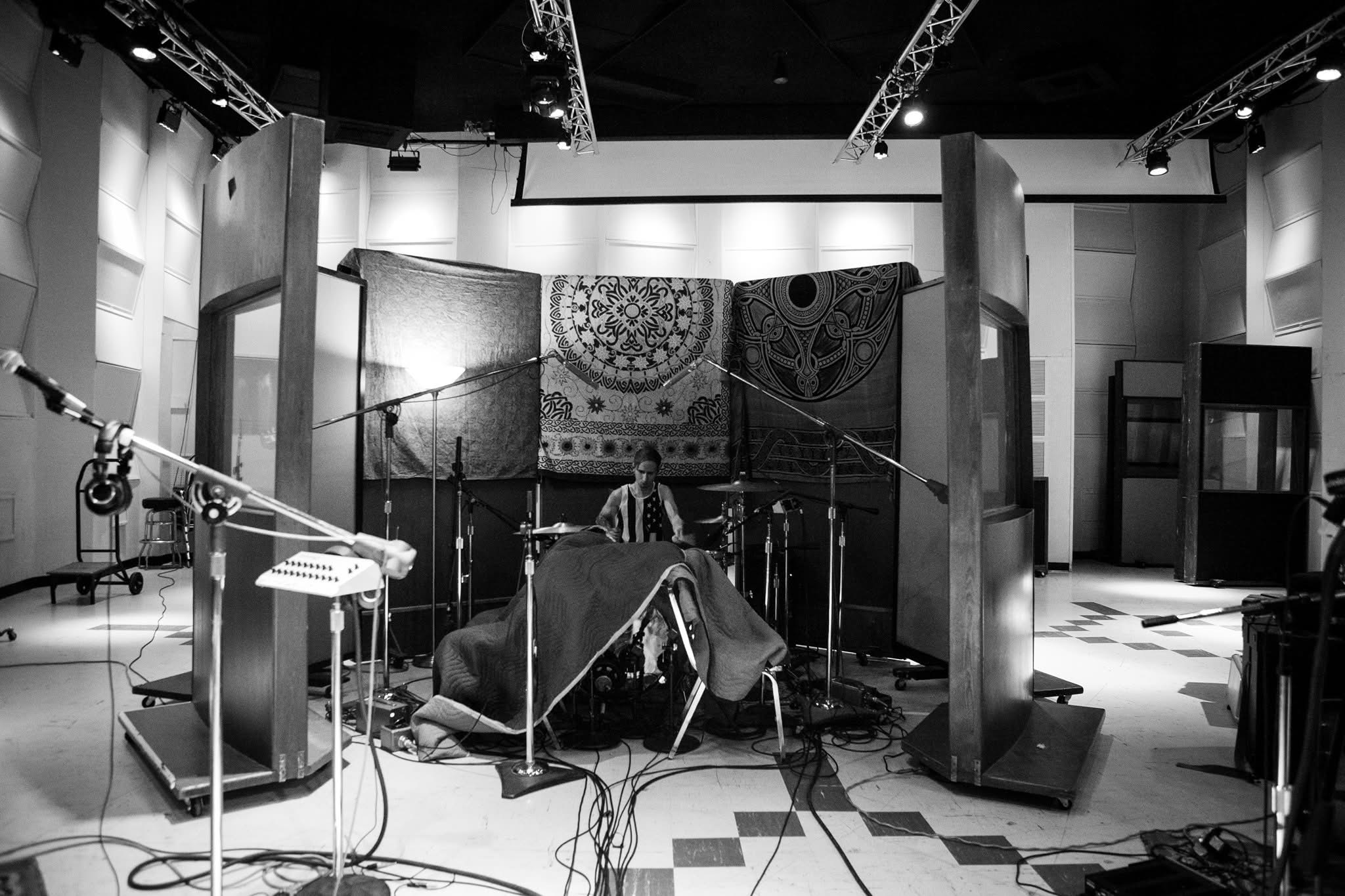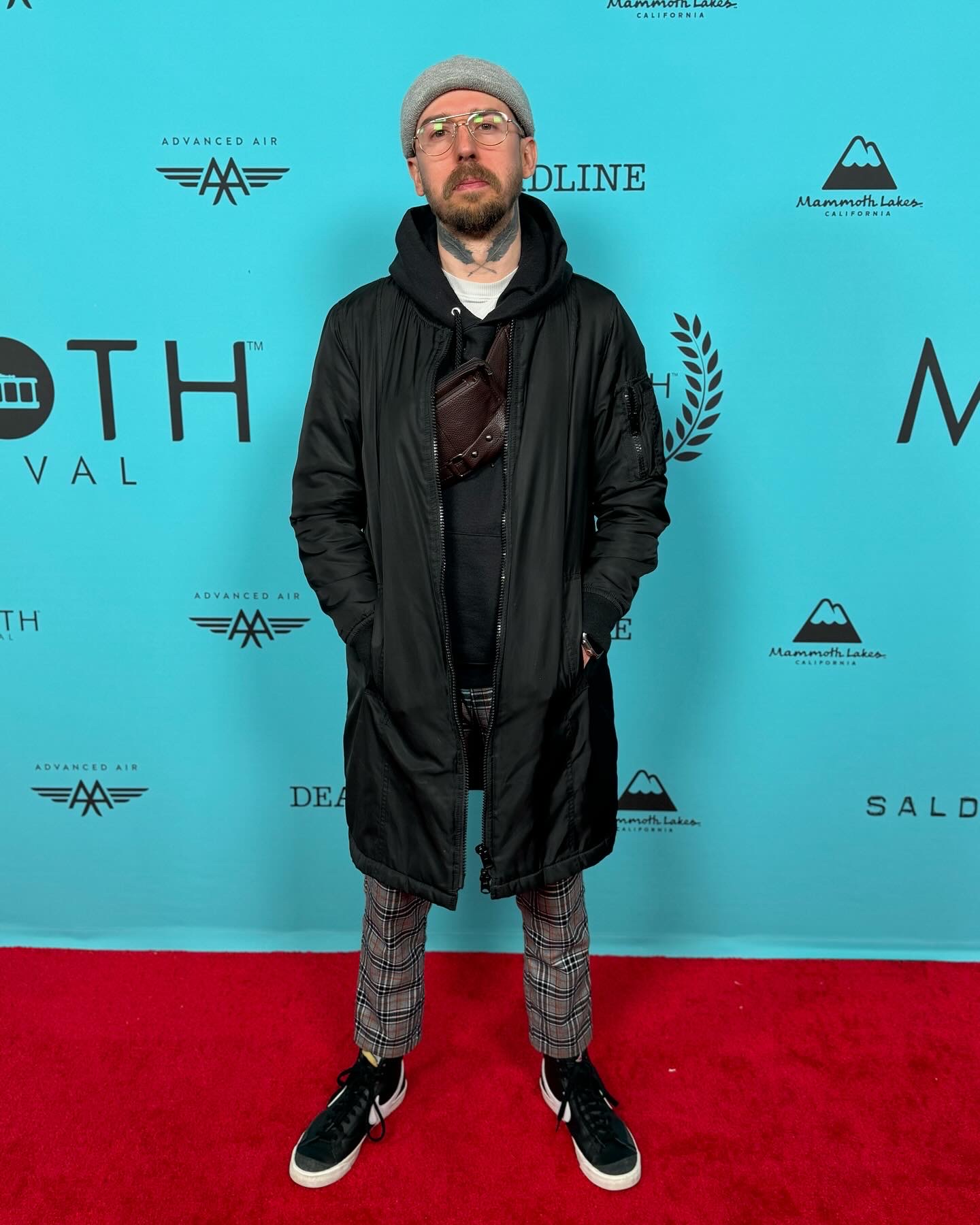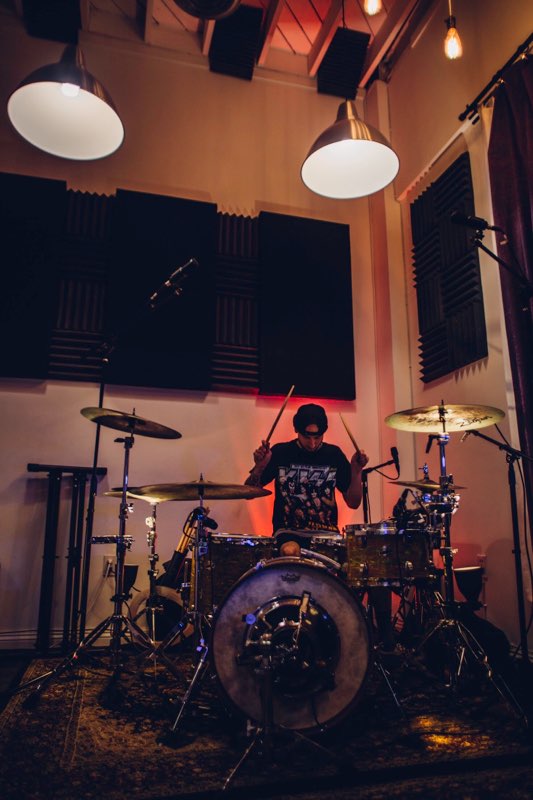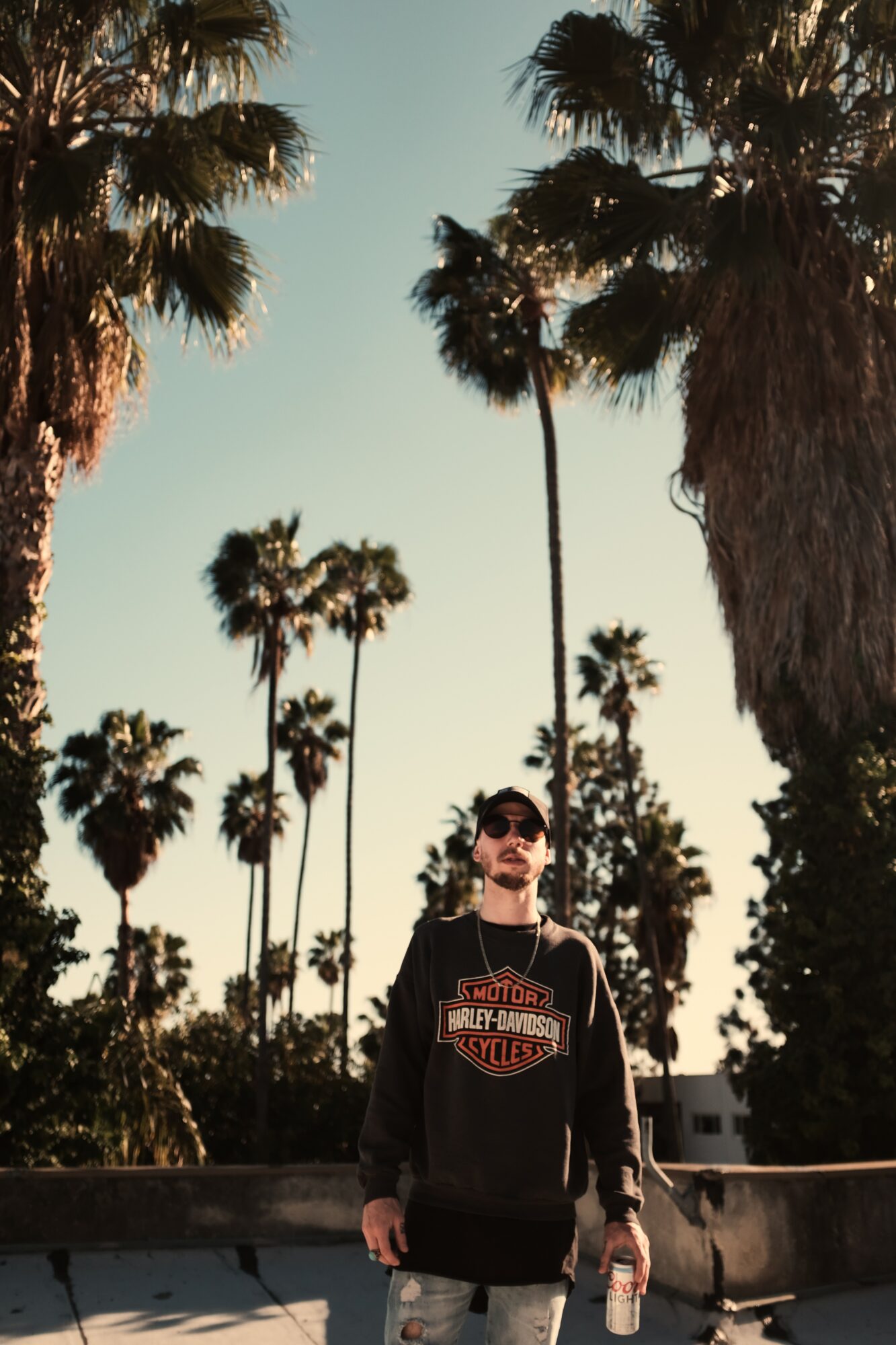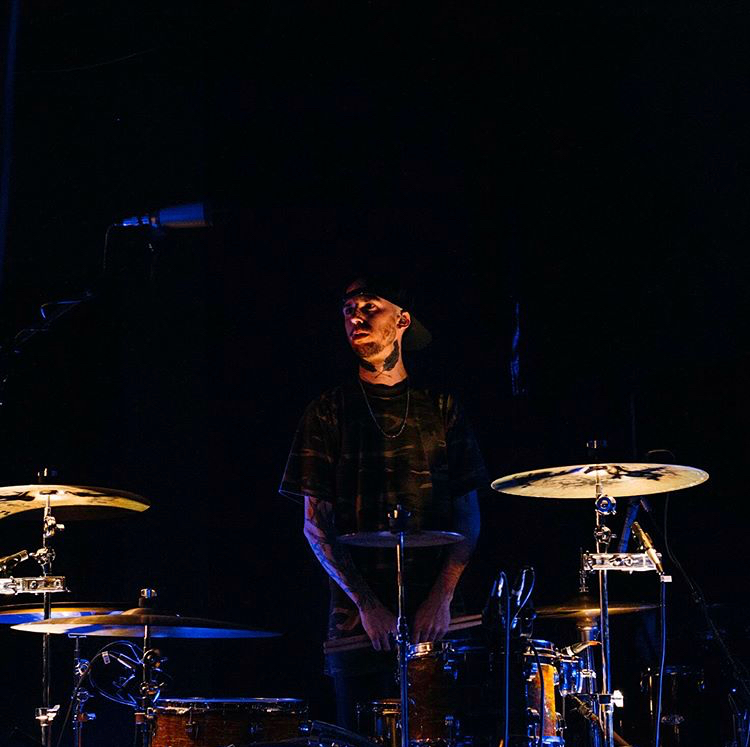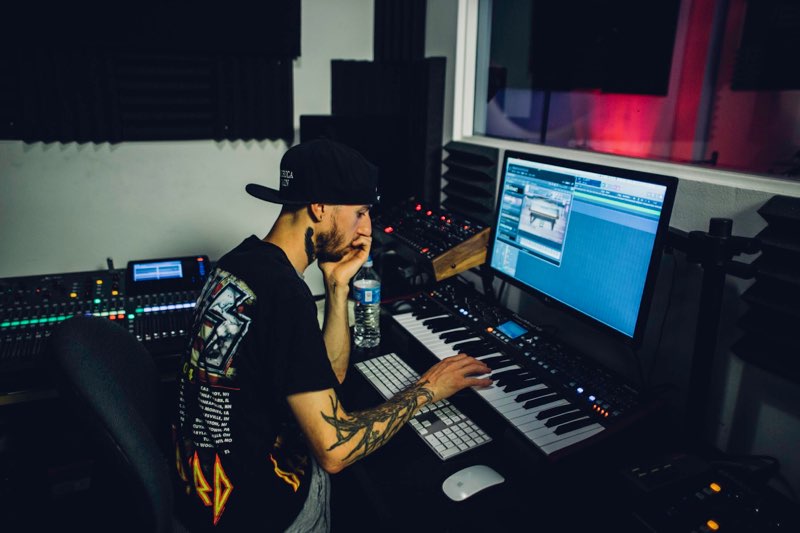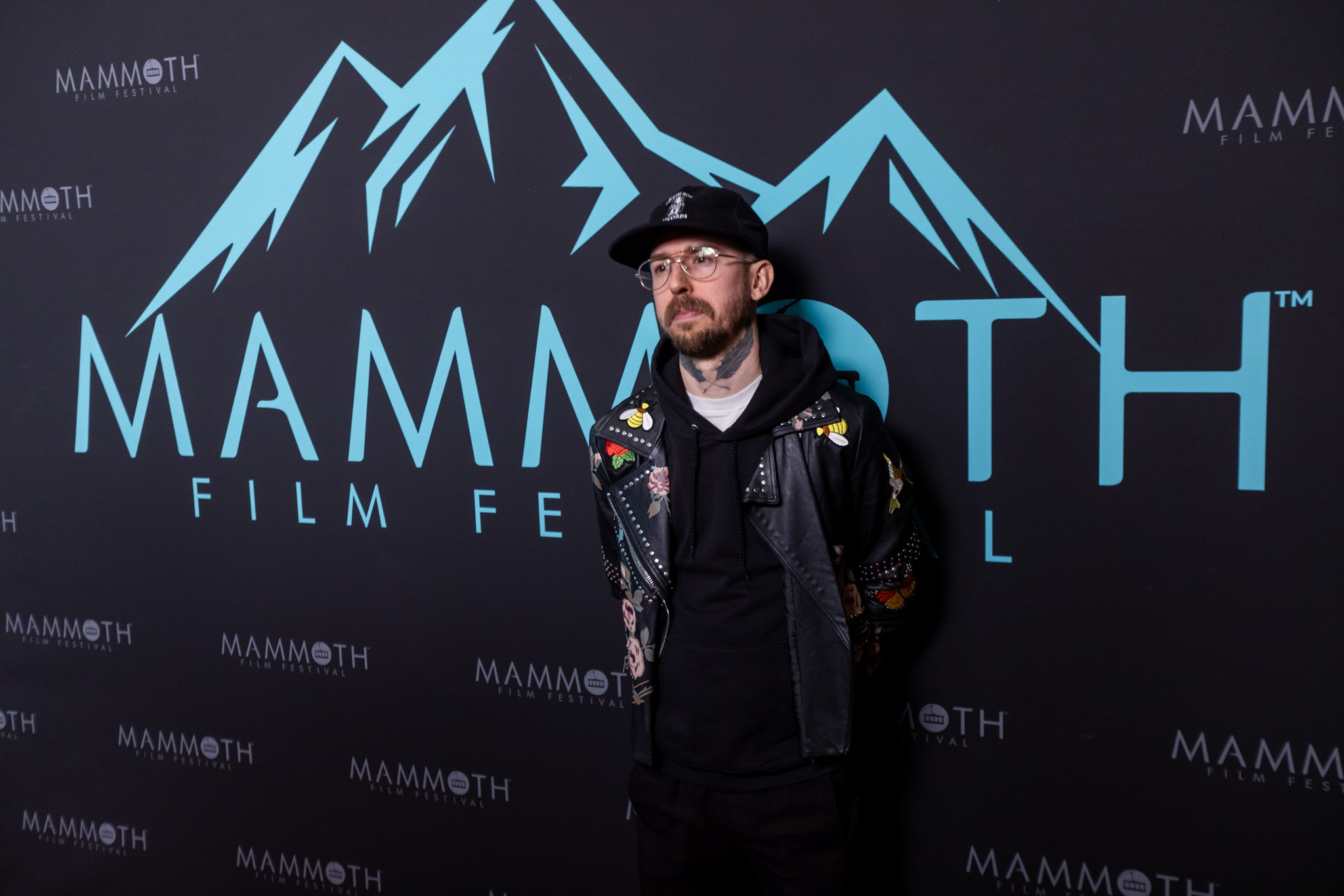

We recently had the chance to connect with Nick Audy and have shared our conversation below.
Good morning Nick, we’re so happy to have you here with us and we’d love to explore your story and how you think about life and legacy and so much more. So let’s start with a question we often ask: What is a normal day like for you right now?
“What’s a normal day look like for me?”
A normal day starts at 6am, when my kids are already wide awake and ready to take on the world one pancake at a time. We all head down for breakfast, and once the chaos settles, I get myself ready for the studio.
By 8am, I’m walking the 300 yards down to the studio. Once inside, I fire up the gear, plug in the computer, and open a fresh Logic project. First order of business: watch the 25-minute episode, run through a solo spotting session, and then start shaping the music.
Around 12pm, I’ve usually got about three solid minutes of music down, so I break for lunch back at the house. By 1pm, it’s back to the studio to continue scoring straight through until about 5:30pm. That’s when I save, double-check, tweak, and finally shut everything down before heading up to the main house for dinner with the family.
The evening shifts gears quickly: by 6:30pm, it’s bath time, pajamas, and maybe a family movie before the kids drift off to bed.
At 8:30pm, the night can go two ways: if deadlines are tight, I’m back in the studio grinding until everything is delivered on time. If not, it’s a quieter night of TV with my wife, catching up on social media, doing some outreach, and maybe winding down with a game of chess on my phone.
By 11:30pm, I’m usually out cold — and come 6am, the cycle starts again. It’s a long day, but when you love what you do, it feels less like a grind and more like a rhythm you’re lucky to play every day.
Can you briefly introduce yourself and share what makes you or your brand unique?
Sure — my name is Nick Audy, and I wear a few hats in the world of music. I’ve been a professional drummer for over 25 years and a film composer for the past 8. My journey started behind a drum kit, touring the country and playing heavy metal since I was a kid. I think what makes me unique is that I come from that rock and roll background, but I always found myself gravitating toward film scores — particularly the music of John Williams. Now, being a professional composer myself, I feel like that journey has given my sound and my vibe in this line of work a unique edge. The tattoos and the fact that I don’t look like your average composer have actually been, in my opinion, a cool advantage.
Over the years, my work has been featured on platforms like Netflix, Disney, Discovery, and even EA Games, and currently I compose for Dhar Mann Studios, scoring weekly episodes that reach millions of viewers. What makes my approach different is that I bring the energy and instincts of a live performer into the world of composing for picture. I think in rhythm, in dynamics, in how sound feels in the body — and that helps me write music that connects emotionally and feels alive on screen.
I’m also passionate about teaching — I’ve taught drums and music production at all levels, from one-on-one mentorship to college classes, and I love helping the next generation of musicians fall in love with their craft.
Right now, I’m working on a 5-part Indiana Jones–inspired series with Allan Riggs, a longtime collaborator, and I’m extremely excited and passionate about where that project is headed. We also just wrapped another film titled Cardo, which is set to release later this year.
These days, I’m focused on balancing it all — scoring projects, teaching, and just as importantly, being present as a dad and husband. That balance is what keeps me grounded and gives real meaning to the work I do. At the end of the day, everything I do comes back to the same goal: using music to connect people to something bigger than themselves.”
Okay, so here’s a deep one: What was your earliest memory of feeling powerful?
My very first memory of feeling powerful was at the age of 4, playing drums in church. I can still remember the acoustics of the room — the volume wrapping around me and hitting me back in the ears. Every hit felt huge, and I instantly became addicted to that feeling. It wasn’t just the sound; it was seeing how the crowd responded, feeling the vibrations move through my body, and realizing that something I was doing could shift the whole energy of the room. That was a game changer for me — and honestly, it still happens every time I step behind the kit.
What did suffering teach you that success never could?
Suffering taught me patience, humility, and perspective in a way success never could. Early in my career, there were moments of doubt, rejection, and uncertainty — times when I questioned if I could make a life in music. Those experiences forced me to dig deeper, to work harder, and to stay committed even when nothing seemed guaranteed. Success can be thrilling, but it doesn’t teach you how to endure, how to adapt, or how to appreciate the journey. Suffering did that. It shaped my character, my work ethic, and ultimately made every victory — big or small — feel meanin
So a lot of these questions go deep, but if you are open to it, we’ve got a few more questions that we’d love to get your take on. What’s a belief or project you’re committed to, no matter how long it takes?
For me, there are three projects I’m committed to no matter how long they take.
The first is being the best dad I can be to my two girls. In my line of work, the hours can be intense, and it’s easy to get swallowed up by deadlines. But making time, being present, and really showing up for them is something I’m always working on. That’s the most important project of my life.
The second is being a better husband to my amazing wife. Anyone who’s married knows it takes effort to stay married — you have to nurture the relationship, protect it, and make it a priority. I’m lucky to have a wife who supports me and takes on so much with our kids when I’m locked into a deadline. Honestly, I couldn’t do what I do without her. She was the one who pushed me to take composing seriously, and I owe so much of my career to her belief in me.
The third is my craft — music. I’m always striving to get better. I know I still have so much further to go, and I think that’s what keeps this career exciting. There’s always something new to learn, some new way to grow, and I try every day to push myself a little further. That lifelong pursuit of growth in music is a project I’ll never stop working on.
Okay, so before we go, let’s tackle one more area. What do you think people will most misunderstand about your legacy?
I think the thing people will most misunderstand in my legacy is how it might look from the outside. I started playing drums at the age of 4 and spent almost my entire childhood and teenage years performing in front of people — in shows, at church, and in various bands. I became really good at it: I toured extensively, and was even accepted to Berklee College of Music to study with some of the greatest drum teachers on the planet. After 25 years as a professional drummer, I suddenly switched to full-time composing. That shift happened around the time COVID hit, the future felt uncertain, and a few life-altering events occurred. A year before, I’d been approached to score my first film, and that opportunity finally made this dream seem reachable.
I still love drums — they’re what got me here — but the new challenge of film composing lit a spark I hadn’t felt before. Music became even more exciting, and I realized there’s more than one way to create something powerful. So, I think people might misunderstand my legacy if they focus only on the image of the “rock-and-roll drummer” or assume that composing came easily. The truth is, it’s all connected: every beat I ever played informs how I write music now, and it’s that journey — from live performance to storytelling through film — that I hope people remember.”
Contact Info:
- Website: https://www.nickaudy.com
- Instagram: https://www.instagram.com/nickaudy?igsh=MmpocGk0aHd0eGRy&utm_source=qr
- Linkedin: https://www.linkedin.com/in/nick-audy-779aa0166?utm_source=share&utm_campaign=share_via&utm_content=profile&utm_medium=ios_app
- Twitter: https://x.com/nickaudy?s=21
